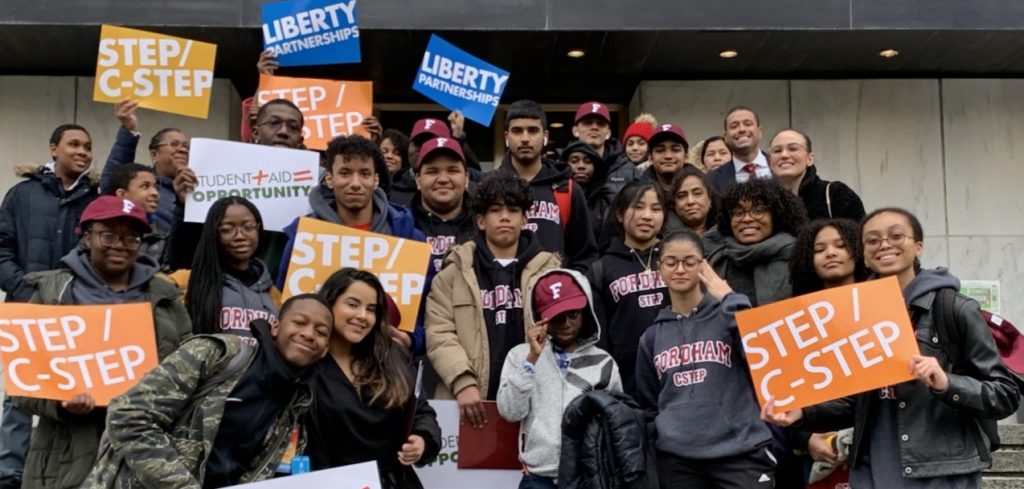“When the pandemic first broke, we were able to pivot, keep the kids tuned in, and give them a sense of community and belonging,” said Michael A. Molina, director of Fordham’s STEP program. “I think that was extremely important and part of why we received this award.”
STEP is a state-funded program that helps minority and economically disadvantaged junior high and high school students prepare for professions in areas where they are underrepresented, especially STEM. Fordham spearheads two STEP programs—one at Rose Hill, the other at Lincoln Center—that collectively serve more than 500 students every year.
In typical years, STEP students receive academic counseling, internships, scholarships, and research opportunities both on and off campus. In addition to regular programming after school and during the summer, they have conducted research with professors at the Rose Hill campus and presented their findings alongside Fordham students at research symposiums. During the pandemic, they continued to learn and stay connected through reimagined ways of learning. In a virtual winter panel, successful Fordham alumni offered advice to STEP students. Last summer, a Fordham professor helped STEP students make connections between the civil rights movement and the Black Lives Matter movement; a University psychologist also offered guidance on how to understand racial trauma and identify strategies for self-care.
This fall, more STEP graduates than ever will be entering Fordham as first-year college students, said Molina.
“This is the largest contingent we’ve had since 1986, when we first started the program at Rose Hill,” said Molina, adding that the usual cohort is about five students, but this year, the number is 18. “And this is not an accident—this is something we’ve been working on for a long time. For the past five to 10 years, our team and the admissions office have been emphasizing to the STEP kids to consider coming to Fordham and joining CSTEP so we can continue to support them.”
CSTEP is similar to STEP, but the C stands for “collegiate.” The state program prepares undergraduate scholars from underrepresented groups for careers in STEM, health, and licensed fields. Fordham’s program is one of the largest in the state. This fall, Fordham CSTEP will resume in-person programming because students on campus are required to be vaccinated. But the STEP program, which serves local junior and high school students, will stay virtual until vaccinations are available and mandated for all children, said Molina.
“We’re going to continue doing what we’ve been doing: create a program that’s as interactive as possible with less lecturing and more of a hands-on approach with projects and faculty,” Molina said. “I’m optimistic. We have a lot of partners, great staff, and teachers who are creative.”
In a few weeks, Molina and his team will welcome to campus not only first-year students, but CSTEP sophomores who never stepped foot on campus during the pandemic when they were first-year students themselves. The CSTEP students, who served as virtual mentors to STEP students during the pandemic, will continue in that role, said Molina.
“One of the biggest things we’ll be focused on is building community with the kids. In-person relationship-building, the academic and non-academic relationships that students build with each other and us—all of that, we’re going to need to rebuild with the kids,” Molina said, referring both to STEP and CSTEP students. “We’re looking forward to having them back.”

